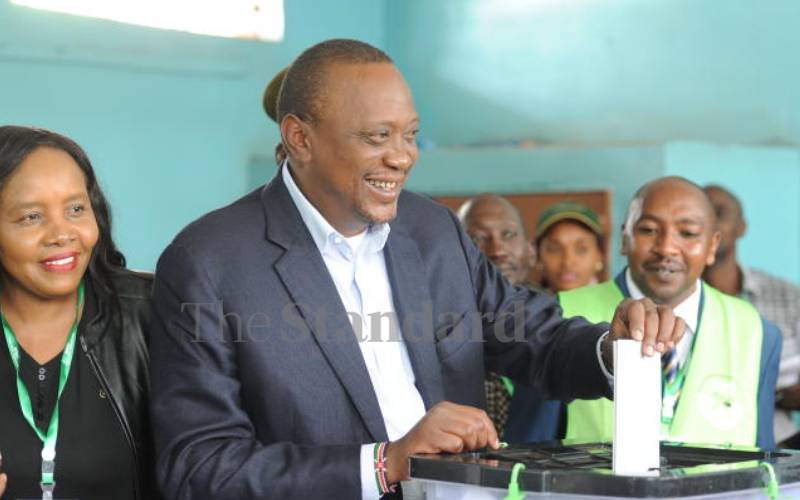×
The Standard e-Paper
Kenya’s Boldest Voice

President Uhuru Kenyatta casting his ballot at Mutomo Primary School, Kiambu County, October 2017. [John Muchucha, Standard]
What if Kenya were your business enterprise? What kind of managers would you put in charge of its various branches and departments?